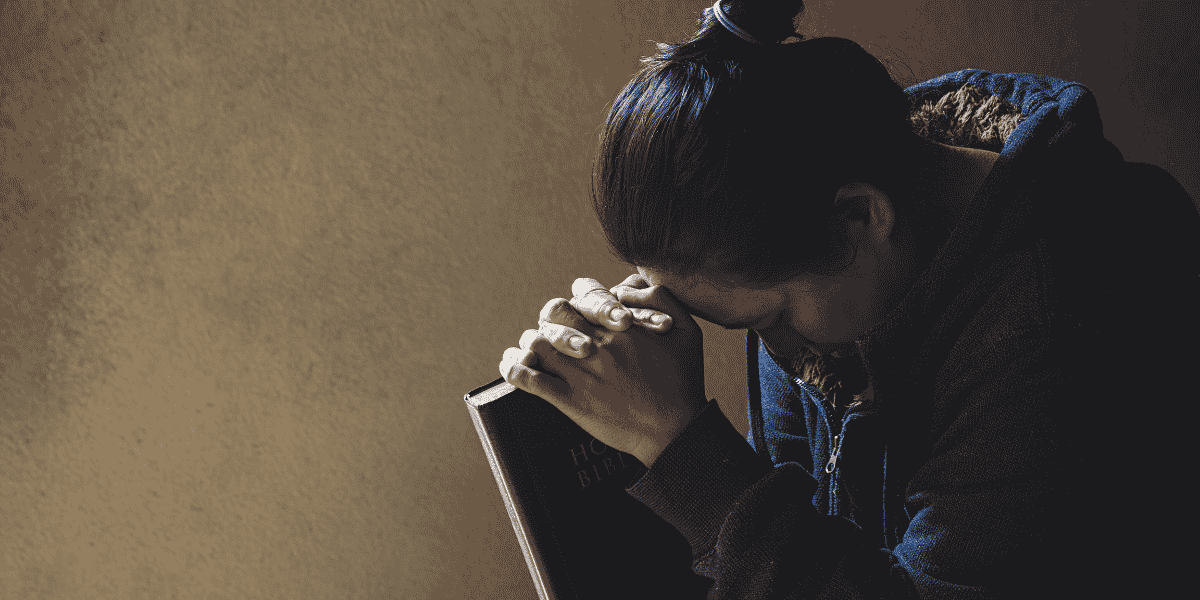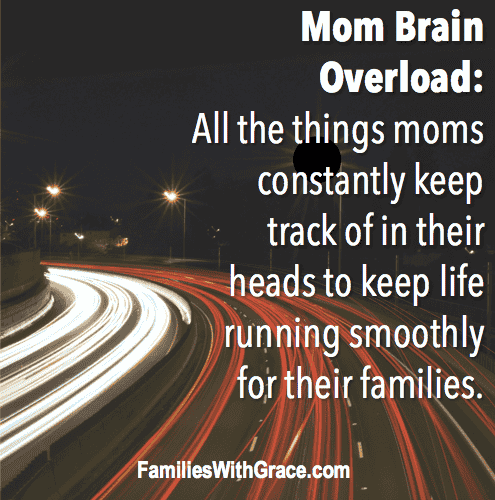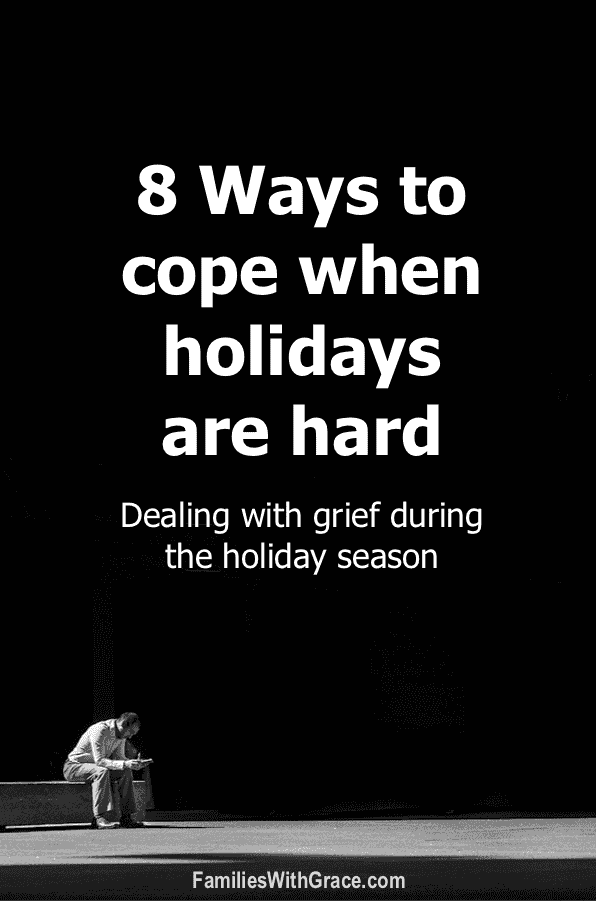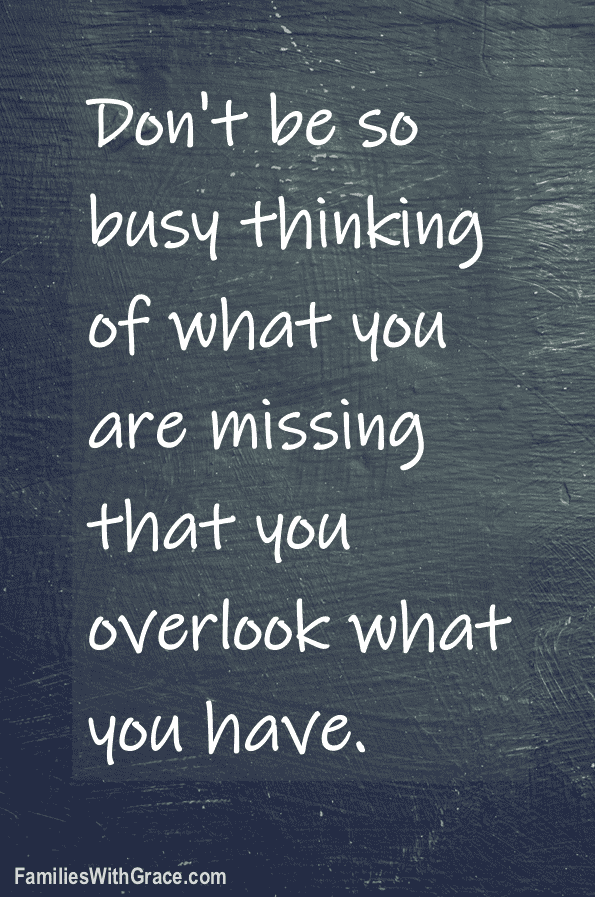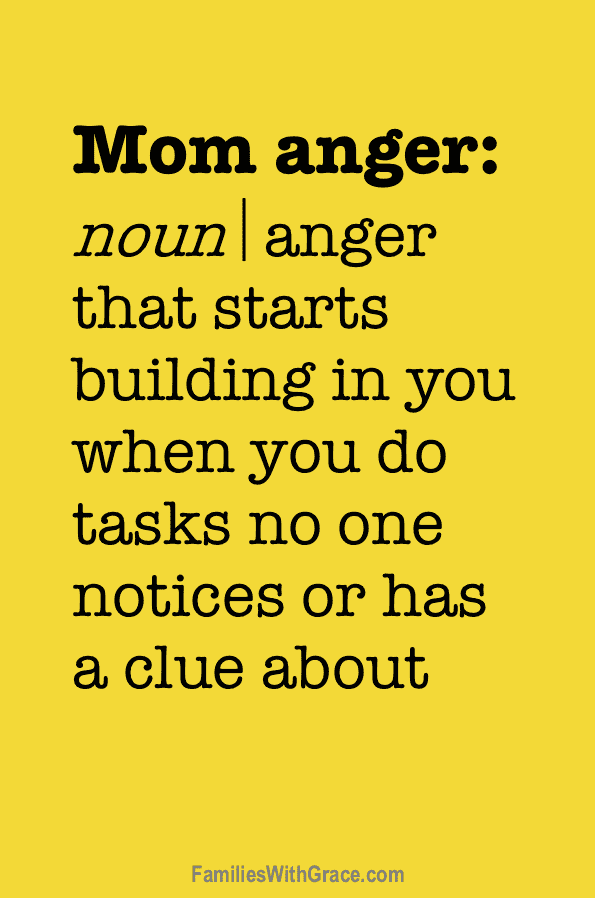Plus 10 faith-based strategies to manage anxiety
I recently had a conversation with a loved one about anxiety and faith. We talked about whether Christians can struggle with anxiety. What does that look like? What does that say about our faith? We weren’t the first people to discuss this, and I know we surely won’t be the last. But, it did get me thinking about a message many Christians need to hear: You aren’t alone in your anxiety. Being anxious doesn’t mean you love God any less.
If you’ve been in church for any amount of time, I’m sure you’ve heard sermons and lessons on how worrying is a sin. Being anxious is a sin. Anxiety means we aren’t trusting God fully. I know what the Bible says about anxiety, but I also know that it remains a struggle for so many of us.
So, can you be a Christian and have anxiety at the same time? The short answer is absolutely! But I think we need to go a bit deeper. I don’t have all the answers or any sort of theological degree. I can only share my experiences, struggles and feelings.
The physical component of anxiety
Having some anxiety is normal and helpful. It’s helped keep humans alive for so many years because we respond to danger and take less risk. However, some of us get stuck in that mode even when no threat is apparent. That’s when we shift to an anxiety disorder.
Like other mental health conditions, anxiety often needs more intervention than just trite advice. And anxiety disorders are rampant. Statistically speaking, about 30% of adults are dealing with an anxiety disorder at any given time. That’s up nearly 10% from 20 years ago.
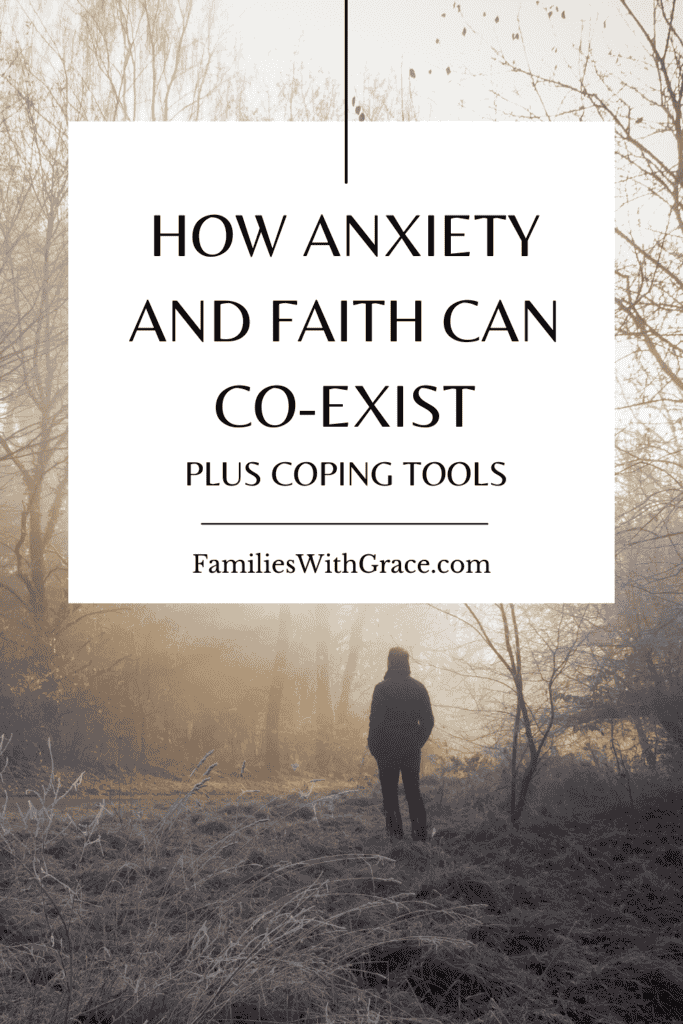
Statistics on how the Christian population compares to the general population in regards to anxiety disorders isn’t available. But, let’s say the Christian population does have less anxiety, we’re still talking about a minimum of 20% of adults. Meaning if you are at a church with 300 attendees on a Sunday morning, then 60 people around you are dealing with an anxiety disorder. So, quite literally, all congregations have members dealing with anxiety disorders.
However, we also must remember the physical component to anxiety. Certain health conditions can cause anxiety, including diabetes, chronic pain, heart disease and thyroid problems. Outside of other health conditions, anxiety can come from a chemical imbalance in our brains, a traumatic experience, ongoing stress or being genetically predisposed. None of those things can be controlled.
I also want to acknowledge the healing power of God here. I have seen Him do miraculous things and heal people. My firm belief is we can pray for and receive healing from anxiety. However, I also know God’s will isn’t always healing on earth. God isn’t any less faithful for not healing someone of anxiety. And it doesn’t reflect his or her faith in any way. Through my years of dealing with various chronic health conditions, I’ve learned these lessons the hard way.
What anxiety and faith look like together
A few years ago, my husband and I were discussing a difficult situation that worried us. My husband is incredibly great at compartmentalizing. He also does well with leaving his worries with God. We were talking about how we handled our worry differently. He mentioned that he trusted God would take care of the situation. I realized I didn’t completely believe that.
Let me explain. I prayed about the same situation and knew that God would work in and through it. However, I didn’t believe it would necessarily work out positively. My husband’s faith was in God’s work to resolve the problem. My faith was that no matter what happened with the outcome, God would be with me. Neither of us were wrong, but my approach certainly leaves room for anxiety.
I like to think I was just being realistic. But, I think more than anything, my perspective came from my anxiety struggles. While my husband could list off all the things that could go wrong, he was able to not fret about them because they hadn’t happened (and might never happen). On the other hand, my mind can get an a runaway anxiety train thinking of all the possible outcomes while still trusting God won’t leave me.
Logically, I know God is in control, but anxiety isn’t logical. One of my worst times of anxiety was right around when my oldest daughter was born. We went on vacation and took her with us onto a large dock with a floating restaurant. I was nearly paralyzed with anxiety because I could just see her stroller going off the dock and into the lake. In my head, that’d just be it. She’d drown. In reality, we had her nowhere near the edge. And had the stroller somehow gone in, my husband or I would have been in the water right afterward to get her to safety. But reality doesn’t often factor into anxiety.
Moving forward in faith with anxiety
Since anxiety disorders are like any other health issue, if we aren’t healed of them, then we need to figure out how to manage them and move forward in spite of them. We can move forward in both practical and spiritual ways.
1. Pray.
Everything should start with prayer, even managing anxiety and faith. You can definitely pray for healing (and I encourage you to), but you can also pray for help handling your anxiety. I do this quite often. I ask God to help me stop thinking about something I’m dwelling on. Or I pray that He helps me to know if a worry is something I need to act on or just have peace about. For example, when it’s the middle of the night and I hear a slight noise that gets my mind reeling with all the bad things it could be.
We have Biblical instruction for doing this very thing, and what I love most is that God promises us peace. While I’ve had my fair share of anxious moments that get my heart racing, I have also felt the peace of God come over and still me in the midst of it.
Related Bible verse: “Do not be anxious about anything, but in every situation, by prayer and petition, with thanksgiving, present your requests to God. And the peace of God, which transcends all understanding, will guard your hearts and your minds in Christ Jesus.” – Philippians 4:6-7 (NIV)
2. Find a Bible verse to comfort you.
The Bible has so many verses about the peace and comfort of God. It reminds us of His presence in our lives. Find a verse that speaks to and calms your heart. (If you don’t have one, ask God to help you find one.) Memorize it and repeat it as often as needed.
For me, that verse is Isaiah 41:10 (see below). I learned the first part of it in third grade and it has stuck with me. I’ve repeated it to myself so many times through the years in different situations and at different times. I’ve used the second part of the verse as a breath prayer. God’s Word is powerful. It truly can cast out fear!
Related Bible verse: “So do not fear, for I am with you; do not be dismayed, for I am your God. I will strengthen you and help you; I will uphold you with my righteous right hand.” – Isaiah 41:10 (NIV)
3. Listen to encouraging music.
Music can minister to us in so many ways. God has spoken to me so many times through songs, even songs I’ve heard and sung for years. Christian music is a part of my life. While it can encourage and uplift me, it also stays in my head. Sometimes a song stuck in my head is just what I need to hear at just the right moment. My anxiety and faith battle in song lyrics!
Recently, I was having a difficult time and kept thinking, “I’ve never felt more alone than I do right now.” Every single time I thought that, “Jireh” from Elevation Worship and Maverick City popped into my head with, “I’ve never been more loved than I am right now.” It helped me turn my focus around to God and the truth, which I definitely needed to do.
Related Bible verse: “Let the message of Christ dwell among you richly as you teach and admonish one another with all wisdom through psalms, hymns, and songs from the Spirit, singing to God with gratitude in your hearts.” – Colossians 3:16 (NIV)
4. Monitor what you watch.
I’ve learned to be careful what I watch. Watching TV news only increases my anxiety. It’s so negative and so dismal. It can add a variety of thoughts to my head that I don’t need. But so can fictional television shows and movies. I’m a sensitive person and always have been. I remember watching a scary movie in fourth grade at a slumber party and can still recall scenes from that movie to this day.
I am not into the murder shows, police shows, medical dramas and so many other things because they only increase my anxiety. And it turns out that God knew this way before I was born. His Word admonishes us to be careful what we watch for a reason!
Related Bible verse: “Finally, brothers and sisters, whatever is true, whatever is noble, whatever is right, whatever is pure, whatever is lovely, whatever is admirable—if anything is excellent or praiseworthy—think about such things.” – Philippians 4:8 (NIV)
5. Think through worst-case scenarios.
This one totally sounds counterintuitive. I sometimes get easily sidetracked and anxious thinking of all the worst-case scenarios. But, years ago my husband challenged me to think of the worst-case scenario of my worries. Then, he said, come up with the solution. Often that helps ease my anxiety because I have a plan. And I love having a plan!
If I come up with the worst-case scenario (and my brain is good at that), I think of what would happen if that scenario came to pass. This works also because it makes me start thinking more practically and realistically – the opposite of how anxiety makes me think.
Related Bible verse: “Suppose one of you wants to build a tower. Won’t you first sit down and estimate the cost to see if you have enough money to complete it?” – Luke 14:28 (NIV)
6. Talk about it.
Anxiety is good at lying to us. It can make problems seem so much bigger than they are. When I have trouble dealing with something or moving on from it, it helps to talk about it with someone I trust. For me, that’s my husband. Often just saying the words out loud help my anxiety and faith meet as I realize what I’m worried about isn’t such a big deal.

We weren’t made to bear our burdens alone. Along with being able to go to God, we also need to have people who we can turn to and trust when our burdens weigh us down. Saying a worry out loud removes at least some of its power.
Related Bible verse: “If either of them falls down, one can help the other up.” – Ecclesiastes 4:10a (NIV)
7. Distract yourself.
I’m not advocating for denial here, but distracting yourself from your thoughts is a good way to help manage your anxiety. Find healthy ways to distract yourself or ground yourself in the moment. I have a coloring app on my phone that I find soothing and often use to unwind and relax.
I’ve also tried some mindfulness and grounding techniques when my anxiety starts to get away from me. For me, this is just stopping my thoughts and shifting my focus to what I can see, feel and hear. It’s beyond just acknowledging those things but really paying attention to them. (Find more relaxation tips and strategies in this article I wrote for the IC Network.) Sometimes what we need most is just a break from our anxious thoughts.
Related Bible verse: “A person can do nothing better than to eat and drink and find satisfaction in their own toil. This too, I see, is from the hand of God.” – Ecclesiastes 2:24 (NIV)
8. Believe you CAN improve.
A major lie anxiety likes to tell us is that we will always feel this way. We don’t have hope for the future and have no reason to try and do better. I’ve been down that path both with anxiety and my other health issues; I get it. I still have days where I think this is the best it gets. But I am continuing to learn that a bad day, week or even month doesn’t mean it will always be bad.
The first step toward making progress is allowing yourself to believe – truly believe – that you can improve. And then you must remind yourself that you are worth the work. I’ve learned that I need to embrace these two concepts when I get stuck and need to move forward. I’m thankful for my husband who also gently pushes me to not just accept “this is how things are.” Even if your anxiety isn’t healed or isn’t just a phase, you can always learn new ways to help manage it. Try new things. Seek professional help. Take medication. Don’t stop trying.
Let me reassure you that God made you. You are worthwhile. He doesn’t make junk, my friend. You are worth the effort needed to improve. Tiny baby steps forward are still steps forward. God has plans to give you a future and a hope!
Related Bible verse: “For I know the plans I have for you,’ declares the Lord, ‘plans to prosper you and not to harm you, plans to give you hope and a future.'” – Jeremiah 29:11 (NIV)
9. Get professional help.
A negative way anxiety and faith can overlap is by trying to convince you that since you have faith you don’t need help. Go back and read the section about the physical component of anxiety. You can try helping yourself. Sometimes that works! But, sometimes it doesn’t because you need more help than you can give yourself.
Think of it like treating yourself when you’re sick. When you first start feeling a scratchy throat, you might drink more liquids and go to bed early. However, if you wake up the next day with a swollen throat and a fever, you know you need to see your doctor and be checked for strep throat. Treat your anxiety the same way. Try things to help yourself, but if it stays the same or gets worse, seek help. There is no shame in seeking help from a medical professional or counselor. God has given us knowledge and resources. We should not be ashamed to use those resources!

Related Bible verse: “Plans are established by seeking advice; so if you wage war, obtain guidance.” – Proverbs 20:18 (NIV)
(Additional note: I left in this entire verse, because we are waging a war on anxiety. It applies!)
10. Focus on who God Is.
When we’re dealing with anxiety, we can feel like everything is shifting. Everything is murky, and nothing makes sense. That’s all the more reason to focus on who God is. He is unchanging, faithful and true. That’s incredibly comforting with or without anxiety.
I remember distinctly a Sunday morning during a really bad time in my life. I’m not sure what the sermon was about that morning. I was too distracted first by my worries but then by the cross at the front of the sanctuary. God spoke into my heart and reminded me the He loves me and sent His Son to die for me. When you aren’t able to cling to anything else, you can cling to God’s love. Shift your focus onto who He is and allow His presence and comfort to flow into you.
Related Bible verses: “As for God, his way is perfect: The Lord’s word is flawless; he shields all who take refuge in him.” – Psalms 18:30 (NIV)
“This is how God showed his love among us: He sent his one and only Son into the world that we might live through him.” – 1 John 4:9 (NIV)

